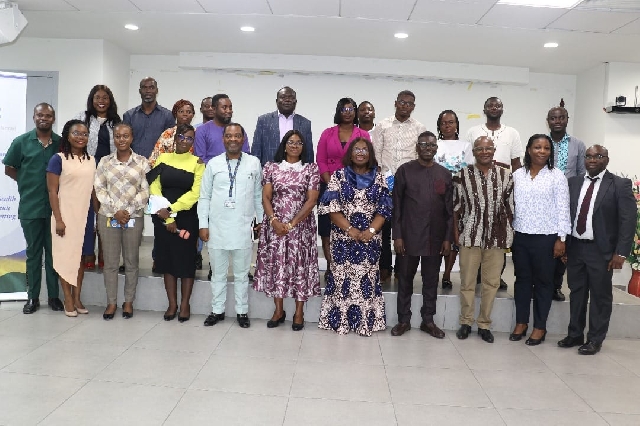MoH, Norwegian University and UG launch StEPS for NCDs
 The expected outcome of the project is to train experts in health economics and priority setting to strengthen capacity in the Ministry of Health
The expected outcome of the project is to train experts in health economics and priority setting to strengthen capacity in the Ministry of Health
The Ministry of Health in collaboration with the University of Bergen, Norway, and the University of Ghana has launched the Support to Evidence-informed Priority Setting (StEPS) Project for Non Communicable Diseases (NCDs) in Ghana.
The aim of the project is to enhance prudent health resource management through priority setting. It is also to facilitate effective priority setting in order to improve efficiency, equity and financial risk protection from essential NCDs.
The Minister for Health, Kwaku Agyeman-Manu, in a speech read on his behalf by Dr Hafez Adams Taher, Director for External Health Cooperation at the Ministry emphasised that the goal of the project is to navigate the complexities of NCDs, identify the most effective interventions, and allocate resources judiciously. This initiative according to the minister is a crucial step toward reducing the burden of NCDs on our healthcare system and on society as a whole.
He stated that the success of the StEPS Project is predicated on the power of collaboration and multi stakeholder engagement and, therefore, called on Healthcare professionals, policymakers, researchers, civil society organisations, and community leaders to rally under the banner of the StEPS Project, underscoring on the country’s collective commitment to addressing NCDs holistically.
Mr Agyeman-Manu mentioned that, tobacco use and harmful alcohol consumption are formidable risk factors for NCDs and added that the StEPS Project underscores the importance of raising awareness about the dangers of these behaviours. The project also provides support for individuals who seek to quit smoking or reduce alcohol consumption.
He, therefore, urged the steering committee members and Technical Working Group Members of the StEPS secretariat to provide leadership to ensure effective implementation to achieve the targets, based on the clear terms of reference.
Professor Lumbwe Chola (StEPS Project Coordinator, Norway), in an address said the project will define and develop capacity in health economics and priority setting related to Non-Communicable Diseases in Ghana.
He mentioned that the expected outcome of the project is to train experts in health economics and priority setting to strengthen capacity in the Ministry of Health.
Dr. Mrs Martha Gyansa-Lutterodt, the Chairperson for the occasion in her closing remarks, said that the burden of NCDs in Ghana requires a comprehensive and targeted approach and by addressing risk factors, Ghana can effectively reduce the impact of NCDs and enhance the overall health and well being of its population.
Source: Classfmonline.com
Trending News

Court grants GHC13 million bail to four over cocaine export attempt at KIA
13:20
NDC in Lower Manya Krobo demands withdrawal of MCE nominee
02:19
Forestry Commission arrests galamsey operator in Pranum forest reserve
13:52
Domelevo questions GHC20,000 gift limit in new code of conduct for political appointees
10:42
Gov't inaugurates steering committee to boost private participation in power distribution
02:07
VRA opens 33-unit biodigester toilet facility in Fakpoe to tackle open defecation
13:06
Mahama outlines 120-day social contract: What’s been achieved and what’s still pending
12:06
Asantehene reaffirms commitment to peace in conflict-hit Bawku
01:50
Ebenezer Opoku elected SRC Vice President of Ghana School of Law-Kumasi campus
10:39
Afenyo-Markin and NPP must apologise for altercation with police officer during protest -Gbande
09:19



